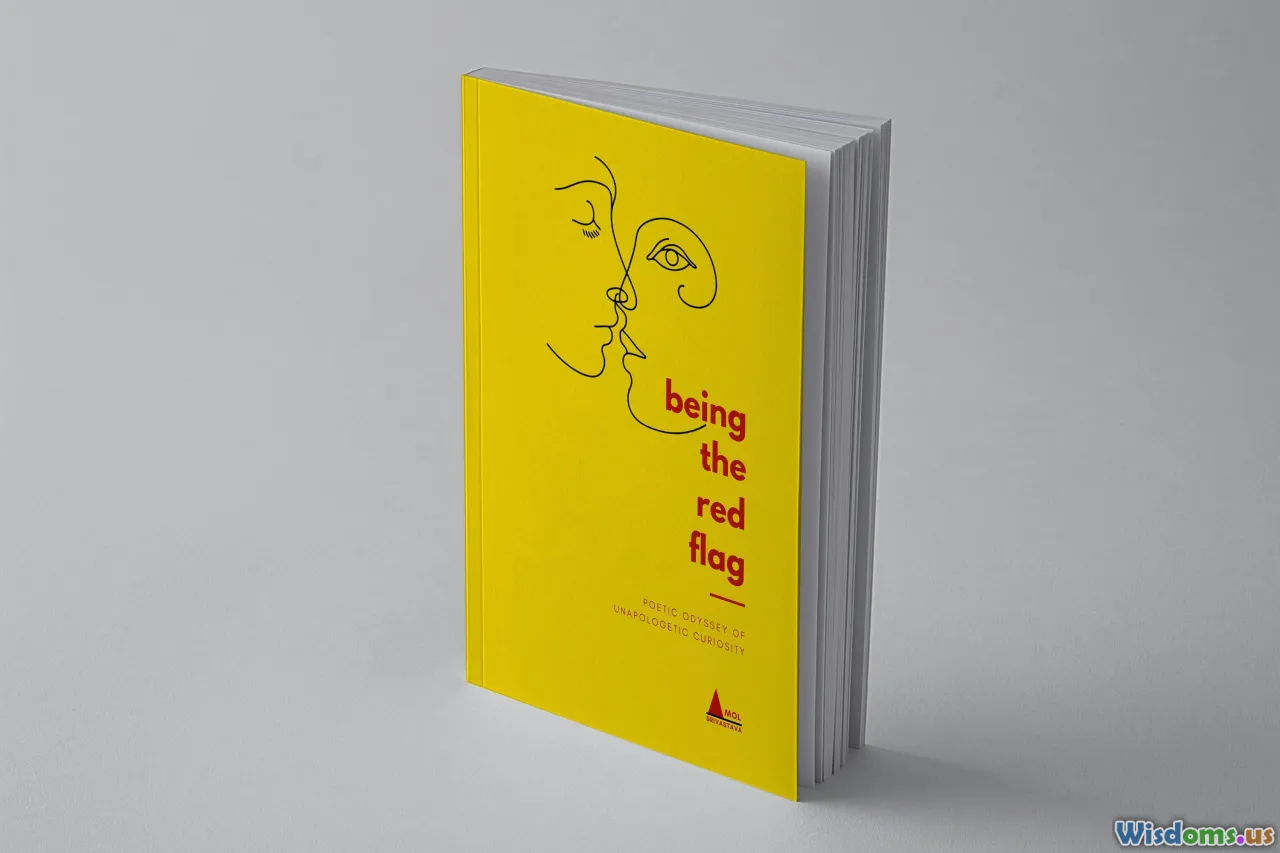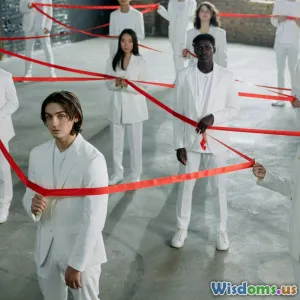
How to Improve Your Chances at Winning a Booker Prize
15 min read Discover proven strategies to elevate your literary work and boost your chances of winning the prestigious Booker Prize. (0 Reviews)
How to Improve Your Chances at Winning a Booker Prize
Few literary dreams loom as large as winning the Booker Prize. Since its inauguration in 1969, this prestigious award has launched careers, sparked heated debates, and secured places for authors in the literary canon. Hundreds compete each year, but only a select few make the longlist, fewer still the shortlist, and just one earns the famed trophy. So, what does it take to shape your writing into a contender? This guide explores the journey to Booker recognition with concrete strategies grounded in the prize’s history, jury insights, and recent winner trends.
Understanding the Booker Prize's Core Values

To improve your odds, start by researching the Booker’s ethos. The prize is awarded annually to the best novel written in English and published in the UK or Ireland. Importantly, it’s not a reward for sales, innovation alone, or popularity shots—it's about excellence, depth, and lasting impact.
Example: In 2019, Bernardine Evaristo ('Girl, Woman, Other') and Margaret Atwood ('The Testaments') shared the award, demonstrating the jury's value on both fresh narrative forms and influential legacy authors.
Actionable Tips:
- Read previous winners and shortlisted novels to decode narrative patterns.
- Note that the prize leans towards works that tackle big themes—identity, politics, the complexities of the modern world—while maintaining literary artistry.
- Follow current events and cultural conversations: Booker-winning works often resonate with the zeitgeist, as seen in Paul Beatty’s 'The Sellout', which satirized racial politics in America.
Mastering Literary Craft and Originality

Quality writing, above all else, sets a Booker novel apart. Judges praise language that is elegant yet meaningful, offering insight or linguistic ingenuity.
Insights from Judges: Judges seek originality in voice, point of view, and approach. For instance, Anna Burns’s 'Milkman' (2018) employed an unnamed narrator and an unusual prose style that divided popular opinion yet garnered critical acclaim for its uniqueness.
Action Steps:
- Experiment with stylistic approaches that enrich your narrative, not just for bravado. Unusual structures or unreliable narrators (see Ian McEwan's 'Atonement' or Evaristo's multiple perspectives) can intrigue judges—if they deepen the story.
- Prioritize substance over pyrotechnics. Substance in theme, character depth, and philosophical inquiry swings favor with the jury more than surface cleverness.
- Rewrite ruthlessly; Booker novels often go through many drafts before submission. Bernice Rubens, an early winner, purportedly redrafted her work 20 times.
Defining the "Booker Book"—A Winning Subject and Voice

While the prize has no restrictive genre loyalty, certain thematic depth and ambition tend to fare better. Judges champion works with social, political, or psychological heft.
Patterns in Winning Books:
- Gripping Character Portraits: Booker books often center on striking protagonist journeys, such as Hilary Mantel’s Thomas Cromwell trilogy, which reanimated historical fiction with psychological realism.
- Big Ideas: Tackling themes of power, freedom, injustice, or human resilience (Arundhati Roy's 'The God of Small Things' is a potent example).
- Risk and Relevancy: Books like Marlon James's 'A Brief History of Seven Killings' broke conventional narrative molds to bring new perspectives to epic, timely subjects.
Practical Suggestions:
- Choose subject matter that matters—ask not only "is my story unique?" but also "is it necessary now?"
- Aim for a balance between intimate storytelling and grander ideas. Daisy Johnson ('Everything Under', shortlist 2018) juxtaposed myth with contemporary realities.
- Read widely; insight into different cultures and perspectives will help avoid clichés and offer jurors something fresh.
Polish and Refine: The Role of Editing and Feedback

No Booker-winning manuscript emerges flawless. Editing is more than fixing grammar—it's a hard, often painful process of trimming excess, tightening narratives, and finessing character arcs.
Case Studies:
- Hilary Mantel reportedly claimed her editor types "NO" beside overwritten passages; Evaristo maintained a running dialogue with her editor throughout.
- Authors often join writing groups or employ professional manuscript assessors to gain objective viewpoints (Eleanor Catton workshopped her 'The Luminaries' rigorously, analyzing every plot and pacing detail).
Tactical Advice:
- Step back after finishing a draft—distance reveals flaws and possibilities.
- Invite constructive criticism from diverse readers, especially those versed in literary fiction.
- Invest in a quality editor; agents often cite that the most polished, submission-ready manuscripts catch jurors' eyes. Well-refined novels like Julian Barnes’s 'The Sense of an Ending' yield an immersive reading experience that wins over technical readers and storytellers alike.
Navigating Submission: Agents, Publishers, and Eligibility

You can’t win what you can’t enter. Submission is meticulous: only novels published in the UK or Ireland and written in English are eligible. Each publisher is allowed a limited number of entries based on recent success rates—making agent selection and publisher ties vital.
Realities of Submission:
- Self-published books are presently ineligible; the Booker Prize Foundation expects rigorous professional editing and industry backing.
- Small presses compete alongside giants. Notably, Anna Burns’s 'Milkman' came from Faber & Faber; Anna Smaill ('The Chimes') was from a tiny imprint, Sceptre.
Action Points:
- Seek reputable agents familiar with literary fiction. Study agency rosters: many Booker alumni are represented by select, experienced London agents.
- Target UK/Ireland publishers with a Booker track record; their editorial process is geared toward depth and impact, and they understand the complex annual submission calendar.
- Pitch strategically; if your first novel isn’t accepted by these publishers, persist but keep refining. Many Booker authors endured multiple rejections before the breakthrough.
Building a Literary Reputation

Visibility counts. Jury members (rotating each year) claim not to weigh prior fame, but public and peer recognition can boost your book’s profile.
Author Case Examples:
- Evaristo built her reputation relentlessly through readings, workshops, and engagement in writers’ circles before her Booker win.
- Colson Whitehead and Salman Rushdie fostered academic and critical acclaim, which lent their novels gravitas and drew the attention of Booker jurors.
Effective Approaches:
- Write essays, short stories, and reviews for respected literary magazines or websites (e.g., Granta, The London Review of Books).
- Speak at festivals or panels. Booker jurors often draw on festival line-ups when observing emerging trends and new voices.
- Social media can showcase your process but avoid self-promotion that feels disingenuous; instead, discuss literature, craft, and ideas.
Staying Persistent Through Rejection and Critique

Booker laureates rarely win on a debut submission. Persistence is the hidden key, and nearly every winner has faced early setbacks.
Notable Stories:
- Keri Hulme ('The Bone People', 1985) submitted her novel to over 80 publishers before an independent press accepted it—going on to win both the Booker and the Pegasus Prize.
- Hilary Mantel, after six novels, won her first Booker in 2009—showing that excellence is as much about perseverance as early talent.
How to Cultivate Resilience:
- Track all rejections as badges of your pursuit, not failures.
- Learn from criticism without diluting your unique voice; sometimes a risky story (like Michael Ondaatje's 'The English Patient') proves transformative after rounds of skeptical feedback.
- Keep writing. Many great Booker storytellers (A. S. Byatt, Peter Carey) spent decades honing their craft through multiple novels before winning.
Leveraging Influences Without Mimicry

Winning novels recognize the tradition they inherit while offering new directions. It's essential to be aware of, but not enslaved to, literary forerunners.
Practical Examples:
- Marlon James cited William Faulkner and Gabriel García Márquez as influences for his Booker-winning novel, but married magical realism with Jamaican dialect to create something new.
- Bernardine Evaristo drew from polyphonic narrative traditions but innovated with structure and voice.
How-to Advice:
- Analyze authors you admire, but avoid copying their tone or themes.
- keep a creative journal logging what attracts you to their style—then challenge yourself to invert or disrupt these methods in your own work.
- Incorporate unique aspects of your cultural, linguistic, and personal perspective; fresh terrain is rewarded, not pastiche.
Responding to Literary Trends—But Not ‘Writing to Win’

Juries sometimes reward novels that speak directly to contemporary themes or recent developments, but chasing literary trends rarely leads to authenticity or lasting recognition.
Analysis:
- 2023’s winner, Paul Lynch’s 'Prophet Song', stood out for its prescience on authoritarianism and the erosion of civil liberties—a topical and weighty concern, but treated with storytelling vigor and subtlety.
- Conversely, some outstanding novels miss out in years dominated by issues-led narratives, which suggests both the power and the risk of focusing too hard on trends.
Advice:
- Be aware of what's on jurors' minds, but treat hot topics through deep character immersion and original plotting.
- Don’t write FOR the prize—write your best, most honest book; jurors are readers first and detect inauthentic attempts to fit a mold.
The Final Touch: Presentation and Timing

In a sea of published fiction, the smallest details—cover design, blurb, launch timing—shape perception and impact jury enthusiasm.
Actionable Details:
- Partner with your publisher on a strong, literate, yet intriguing pitch and synopsis. The summary sent to jurors and booksellers must go beyond “issue” and intrigue with character and voice.
- Insist on professional-quality cover art—even for literary fiction. First impressions matter!
- Consider your book’s publication date and surrounding season. Spring or early summer (April to July) often aligns better with the Booker Prize eligibility calendar, allowing publicity to build momentum.
- Engage with independent booksellers; they are often quieter but powerful advocates and sometimes even early buzz sources for less-hyped Booker contenders.
The Booker Prize is many things: a reward for ambition and excellence, a snapshot of our times, and a call to bold storytelling. While there are no guarantees or shortcuts, attuning your craft, vision, and literary sheer will to these lessons won’t just boost your chances—it will elevate your writing for a lifetime, whether or not your name is read from the celebrated stage.
Rate the Post
User Reviews
Popular Posts

















